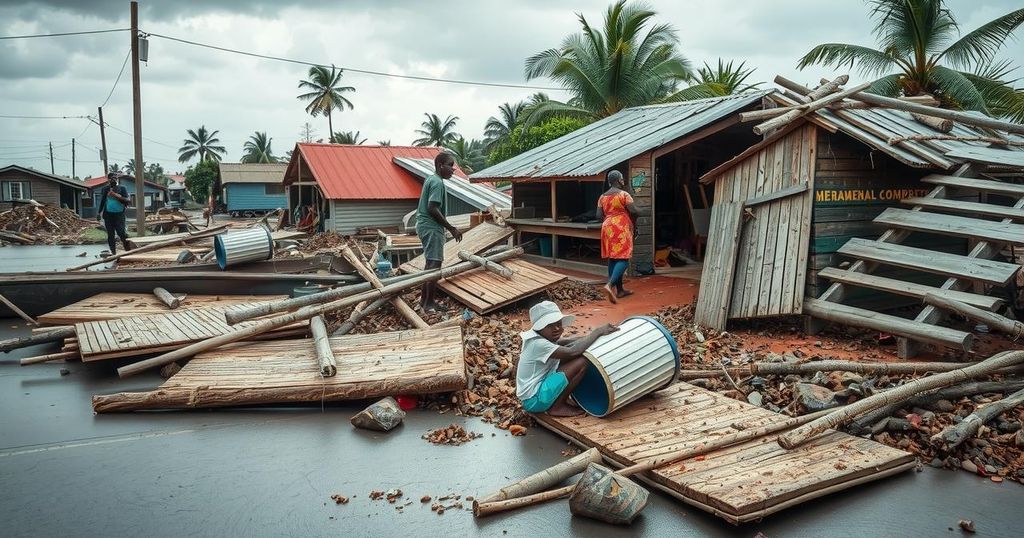Cyclone Chido’s Destructive Impact on Mozambique: A Call for Urgent Humanitarian Aid
Cyclone Chido has caused widespread destruction in northern Mozambique, leading to the displacement of thousands and significant damage to infrastructures such as schools and homes. UNHCR is coordinating immediate assistance for approximately 190,000 individuals in need, as well as monitoring the broader regional impact across Mayotte and Malawi. The cyclone’s aftermath exacerbates existing vulnerabilities, underscoring the urgent need for humanitarian aid and climate resilience.
Tropical Cyclone Chido has struck northern Mozambique, resulting in extensive damage in the Cabo Delgado and Nampula provinces. The cyclone has devastated communities by destroying homes, leaving thousands displaced, and causing significant damage to vital infrastructure, which has complicated relief efforts in already vulnerable areas. In response, the UN Refugee Agency (UNHCR) is collaborating with the government of Mozambique and humanitarian partners to provide emergency assistance, reaching over 2,600 individuals within the first two days of the cyclone’s impact. Preliminary estimates indicate that approximately 190,000 people require immediate humanitarian aid, amidst the storm’s destructive aftermath which included the loss of nearly 10,000 homes and the damage to 33 schools.
UNHCR has pre-emptively positioned essential supplies and facilitated disaster preparedness awareness leading up to the storm, which appears to have mitigated effects on the Maratane refugee camp. However, the cyclone also unleashed destruction in Mayotte and southern Malawi, highlighting the dire situation of asylum-seekers and other vulnerable populations affected by the storm. UNHCR expresses concern that Cyclone Chido may herald a more destructive rainy season, potentially exacerbating the plight of displaced communities already at risk of further losses. With resources rapidly dwindling, there is a critical need for increased humanitarian support as the region grapples with the ongoing repercussions of climate change on its most vulnerable citizens.
The impact of Cyclone Chido underscores the ongoing challenge of climate change in regions that are already grappling with humanitarian crises. Northern Mozambique, particularly the provinces of Cabo Delgado and Nampula, has faced years of conflict and displacement, making the affected communities particularly susceptible to natural disasters. UNHCR’s proactive measures leading up to the cyclone aimed to safeguard communities and enhance their preparedness, demonstrating the importance of climate-resilient infrastructure in mitigating damage during extreme weather events.
In summary, Cyclone Chido has wrought severe devastation in Mozambique, displacing thousands and complicating relief efforts amid existing vulnerabilities due to conflict and economic hardship. The UNHCR is actively coordinating emergency assistance while emphasizing the urgent need for humanitarian support as affected communities face the impending risks of a destructive rainy season. Sustained efforts will be necessary to address the immediate and long-term needs of those affected by this disaster.
Original Source: www.unhcr.org




Post Comment